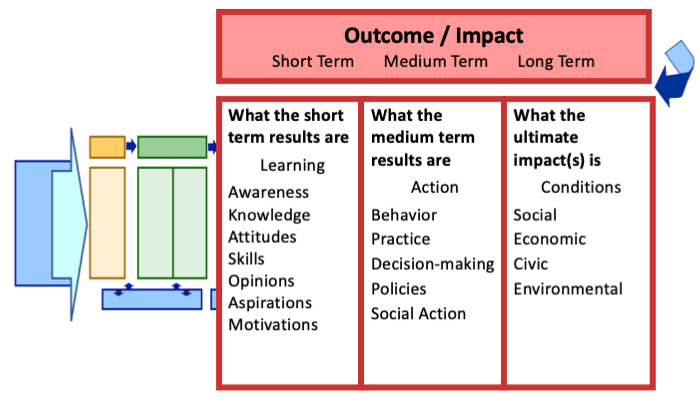Home » Enhancing Program Performance with Logic Models » Section 2: More about Outcomes » 2.18: Section summary
2.18: Section summary

Outcomes are the benefits that result from the program or initiative. These benefits may be for individuals, groups (including households, families), agencies and organizations, systems, or communities. Outcomes relate to the knowledge, skills, attitudes, motivations, values, capacities, behaviors, practices, policies, decision-making, and actions that occur affect our economic, social, civic, and environmental conditions.
Outcomes:
- Are not “what we do” but what results from what we do that is of value or benefit to others.
- Often occur over time on a continuum from short- to longer-term results.
- May focus on the individual, group (family), agency, systems, and community.
- Are usually best identified through the involvement of others.
- Should be important, realistic, and reasonable.
- Can be articulated in succinct, action-oriented statements.
- Can be unintended and negative so it is important to think about the unexpected, as well as the expected, as we craft our logic models.




